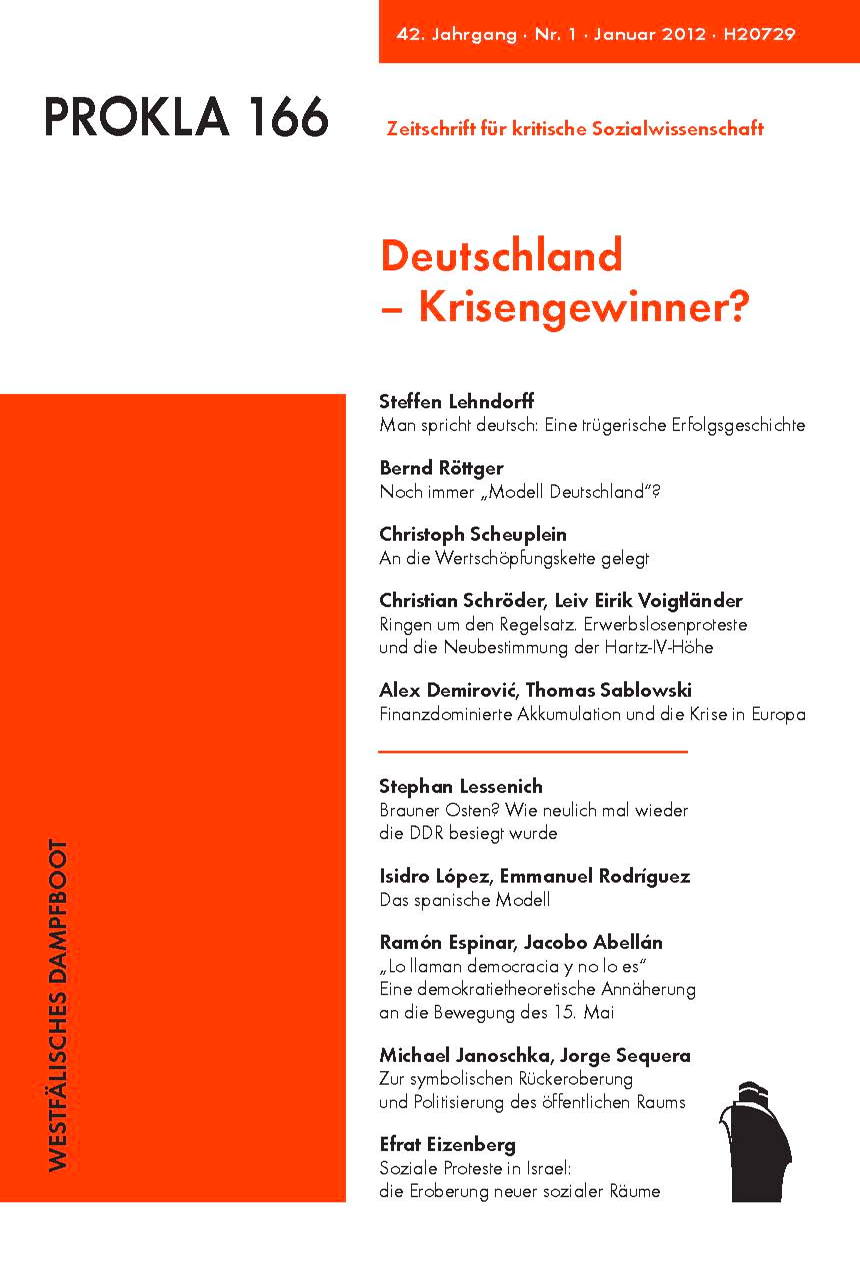Das spanische Modell
DOI:
https://doi.org/10.32387/prokla.v42i166.21Schlagworte:
Spanien, spanische Modell, Kapitalismus, RegulationstheorieAbstract
Prior to the debacle of 2008,
Spain’s economy was an object of particular admiration for Western commentators. In the
context of the global crisis, however, Spain has been hovering on the brink of classification as
a case for Eurozone bail-out, following Greece, Ireland and Portugal. We borrow from Robert
Brenner’s concept of ‘asset-price Keynesianism’ in order to analyse the recent crash of the
Spanish economy as well as its social and political consequences. The bursting of the Spanish
bubble has torn the veil from a highly polarized social order, with a large proportion of the
population deep in debt, many out of work and dependent on public services doubly hit by
spending cuts and privatization.






